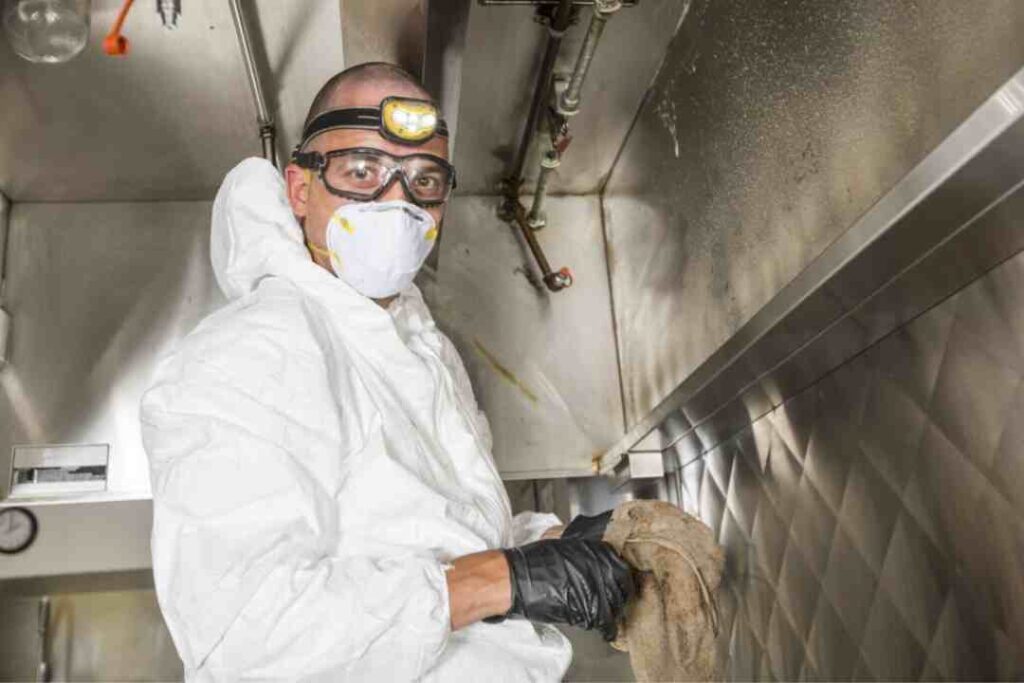Table of Contents
- Professional Hood Cleaning Services: Ensuring Safety and Efficiency in Commercial Kitchens
- The Importance of Hood Cleaning
- The Role of Professional Hood Cleaning Services
- 1. Expertise and Training
- 2. Compliance with Regulations
- 3. Thorough Cleaning Process
- 4. Preventive Maintenance
- Case Study: The Impact of Professional Hood Cleaning
- Frequently Asked Questions
- 1. How often should a commercial kitchen’s hood be cleaned?
- 2. Can’t I clean the hood myself or assign it to my kitchen staff?
- 3. How long does a professional hood cleaning service take?
- 4. Are professional hood cleaning services expensive?
- 5. How can I find a reliable professional hood cleaning service?
- Summary
Professional Hood Cleaning Services: Ensuring Safety and Efficiency in Commercial Kitchens
Commercial kitchens are the heart of the food service industry, serving up delicious meals to hungry customers day in and day out. However, behind the scenes, these bustling kitchens can quickly become a breeding ground for grease and grime, posing serious risks to both the establishment and its patrons. This is where professional hood cleaning services come into play, providing a vital solution to maintain cleanliness, safety, and efficiency in commercial kitchens.
The Importance of Hood Cleaning
The kitchen hood, also known as the exhaust hood or range hood, is a crucial component of any commercial kitchen. Its primary function is to remove smoke, heat, and airborne contaminants generated during cooking, ensuring a comfortable and safe environment for chefs and staff. However, as the hood collects these pollutants, it becomes a magnet for grease buildup, which can lead to a range of issues:
- Fire hazards: Grease buildup in the hood and exhaust system is highly flammable, increasing the risk of kitchen fires. According to the National Fire Protection Association (NFPA), nearly one-third of all restaurant fires are caused by grease buildup in the exhaust system.
- Poor air quality: When the hood is clogged with grease, it hampers its ability to effectively remove smoke, odors, and other contaminants from the kitchen. This can result in poor air quality, leading to discomfort for staff and potential health hazards for both employees and customers.
- Reduced efficiency: A dirty hood and exhaust system can impede airflow, causing the kitchen’s ventilation system to work harder and less efficiently. This can lead to increased energy consumption and higher utility bills.
- Non-compliance with regulations: Health and safety regulations require regular hood cleaning to maintain a clean and safe kitchen environment. Failure to comply with these regulations can result in fines, closure of the establishment, or even legal action.
The Role of Professional Hood Cleaning Services
While regular cleaning by kitchen staff is essential, it is often not enough to tackle the deep-seated grease and grime that accumulates in the hood and exhaust system. Professional hood cleaning services offer specialized expertise, equipment, and techniques to ensure a thorough and effective cleaning process. Here’s how they play a crucial role in maintaining safety and efficiency in commercial kitchens:
1. Expertise and Training
Professional hood cleaning technicians undergo extensive training to understand the complexities of commercial kitchen ventilation systems and the best practices for cleaning them. They are equipped with the knowledge and skills to identify potential issues, such as damaged or malfunctioning components, and address them promptly.
2. Compliance with Regulations
Health and safety regulations, such as those set by the NFPA and local authorities, outline specific requirements for hood cleaning frequency and standards. Professional hood cleaning services ensure compliance with these regulations, providing establishments with the necessary documentation to demonstrate their commitment to safety and cleanliness.
3. Thorough Cleaning Process
Professional hood cleaning services employ a comprehensive approach to remove grease and grime from the hood and exhaust system. This typically involves the following steps:
- Preparation: Technicians cover and protect surrounding areas to prevent any damage or contamination during the cleaning process.
- Disassembly: The hood and its components, such as filters, fans, and ductwork, are carefully disassembled to access hard-to-reach areas.
- Deep cleaning: Specialized cleaning agents and equipment are used to remove grease buildup from all surfaces, including the hood, filters, fans, and ductwork.
- Inspection: After cleaning, technicians inspect the entire system to ensure it is free from grease, properly reassembled, and functioning optimally.
4. Preventive Maintenance
Professional hood cleaning services not only clean the hood and exhaust system but also provide preventive maintenance to extend the lifespan of the equipment. They can identify and address potential issues before they escalate, saving establishments from costly repairs or replacements down the line.
Case Study: The Impact of Professional Hood Cleaning
To illustrate the importance of professional hood cleaning services, let’s take a look at a real-life case study:
ABC Restaurant, a popular eatery in downtown Toronto, had been operating for several years without regular hood cleaning. The kitchen staff performed basic cleaning tasks, but the accumulated grease in the hood and exhaust system went unnoticed. One fateful evening, a fire broke out in the kitchen, causing significant damage and forcing the restaurant to close temporarily.
Following the incident, ABC Restaurant decided to invest in professional hood cleaning services. The cleaning technicians thoroughly cleaned the hood and exhaust system, removing years’ worth of grease buildup. They also identified a damaged fan that was not functioning properly, which could have further exacerbated the fire risk.
With regular professional hood cleaning and maintenance, ABC Restaurant not only ensured the safety of its staff and customers but also improved the overall efficiency of its kitchen. The improved airflow and reduced grease buildup resulted in a more comfortable working environment and lower energy consumption.
Frequently Asked Questions

1. How often should a commercial kitchen’s hood be cleaned?
According to NFPA standards, commercial kitchen hoods should be cleaned at least every six months. However, the frequency may vary depending on the type of cooking and volume of food preparation. High-volume establishments or those that use a lot of grease should consider more frequent cleanings, such as quarterly or even monthly.
2. Can’t I clean the hood myself or assign it to my kitchen staff?
While regular cleaning by kitchen staff is important, it is often not sufficient to tackle the deep-seated grease and grime that accumulates in the hood and exhaust system. Professional hood cleaning services have the expertise, specialized equipment, and techniques to ensure a thorough and effective cleaning process.
3. How long does a professional hood cleaning service take?
The duration of a professional hood cleaning service depends on various factors, such as the size of the hood and exhaust system, the level of grease buildup, and the accessibility of components. On average, a comprehensive cleaning can take anywhere from two to six hours.
4. Are professional hood cleaning services expensive?
The cost of professional hood cleaning services can vary depending on factors such as the size of the hood and exhaust system, the level of grease buildup, and the location of the establishment. While it may seem like an additional expense, investing in professional hood cleaning services can save establishments from costly repairs, fines, and potential closure due to non-compliance with regulations.
5. How can I find a reliable professional hood cleaning service?
When searching for a professional hood cleaning service, it is important to consider their experience, certifications, and customer reviews. Look for companies that are certified by reputable organizations, such as the International Kitchen Exhaust Cleaning Association (IKECA), and have a track record of providing high-quality services. Asking for recommendations from other restaurant owners or managers can also help in finding a reliable service provider.
Summary
Professional hood cleaning services play a crucial role in maintaining safety and efficiency in commercial kitchens. By removing grease buildup from the hood and exhaust system, these services reduce the risk of fire hazards, improve air quality, and ensure compliance with health and safety regulations. With their expertise, specialized equipment, and thorough cleaning process, professional hood cleaning services provide establishments with peace of mind, allowing them to focus on what they do best: serving delicious meals to their customers.
Ensure the safety and efficiency of your commercial kitchen by investing in professional hood cleaning services. Visit Ontario Hood Cleaning to learn more.







